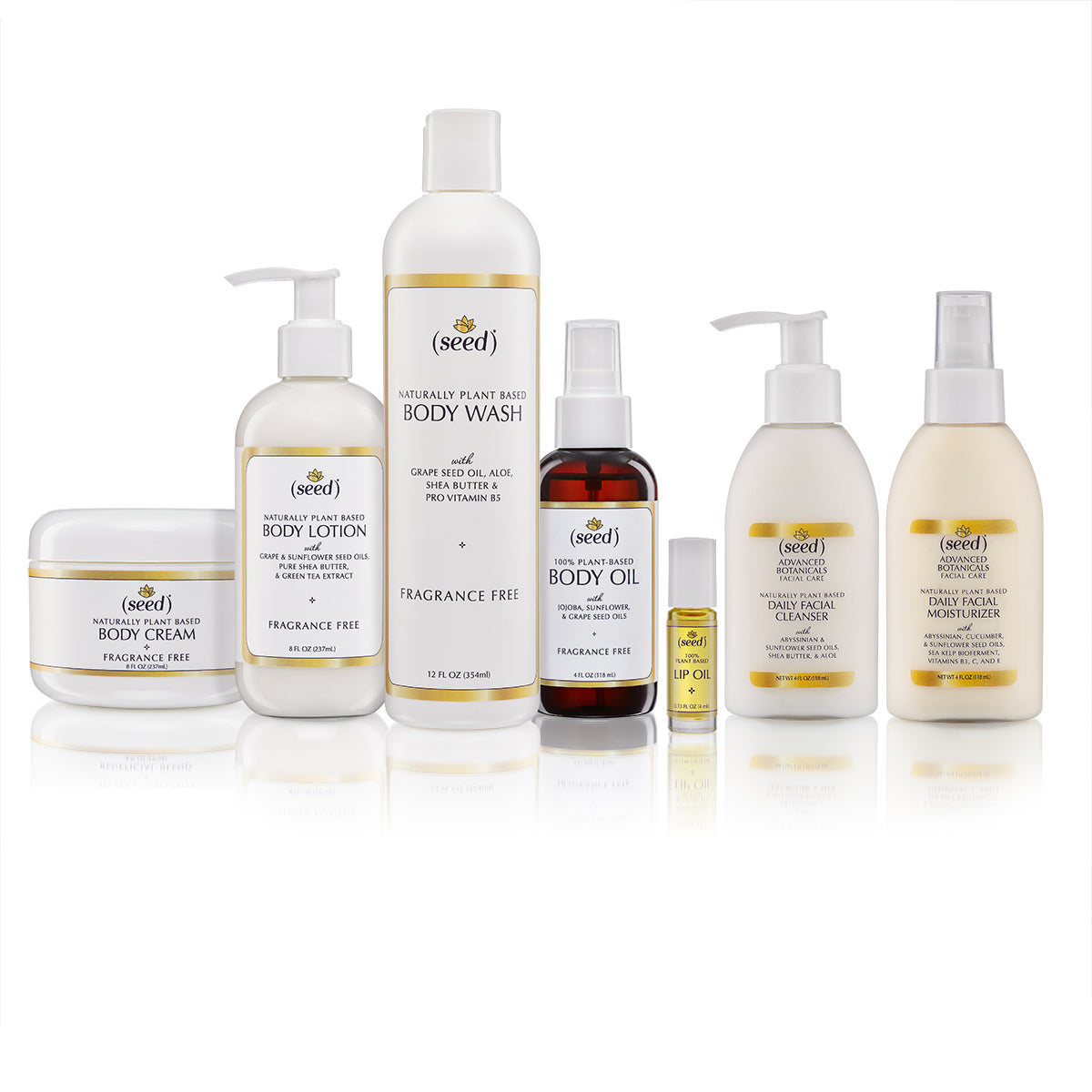Is there silicone in your hand cream?
![]()
Today we're taking a look back at a common hand cream ingredient: dimethicone. This is silicone. Let’s learn a bit more.
Dimethicone, in science speak, is a silicone-based polymer. It is a man-made in the lab ingredient. It is found in everything from makeup primers to anti-wrinkle creams because of how it can glide over the skin and spread with ease. It kind of acts like a silky form of putty, in some ways, because it can temporarily fill in lines and large pores and allow your foundation to glide over it with ease. That’s why it’s the backbone, so to speak, of so many firming creams. It tricks you into thinking it is firming your skin.
Silicones aren’t BAD necessarily–at least not in the way parabens and DMDM Hydantoin and other toxins in skin care may be. The FDA approves their use and the Skin Deep Database at the EWG doesn’t give it an alarmingly high score. Still...
Over time, dimethicone usually makes your skin look worse. Dimethicone forms a barrier — it is a polymer. In other words, it forms an artificial coating over your skin. Now think about this. If you are, day in and day out, applying a product that leaves an artificial coating to your skin, it will eventually wreak havoc on your skin.
This happens because everyday dirt, bacteria, sweat, etc. gets trapped underneath that barrier. This creates the perfect opportunity for breakouts and skin irritation to occur. It also inhibits something vital: the natural process of dead skin cells shedding. If your skin cells aren’t shedding, they are collecting. The result? Patches of uneven texture and tone, dryness, skin congestion, and flaking. This creates a vicious cycle. Your skin starts looking dry and dull, so you apply MORE of the product causing the problem to begin with.
Over time, that cream you bought to give your skin a lift may actually AGE YOUR SKIN.
Click on the below to visit our Seed website - we offer a full line of products without dimethicone, silicone, or any petrochemicals (including Hand Cream!)
Leave a comment
Comments will be approved before showing up.
Also in Lately I've been paying more attention

5 Skin Care Benefits of Black Cumin Seed Oil
Black Cumin Seed Oil is an ingredient used in skin care that is unfamiliar to many. We like to think of it as an unsung hero. Just what is Black Cumin Seed Oil and why is it so beneficial for the skin?
Let's learn more:
Black Cumin Seed Oil, or Nigella sativa, is rich in history. Used in skin care for thousands of years, it is believed that both Cleopatra and Nefertiti used the seeds in their bath water. In fact, it is said that this ingredient has been used by royalty as a natural skin care remedy for over 4000 years!
Black Cumin Seed Oil is an elixir for red and irritated skin. Known for its anti-inflammatory and antibacterial benefits, Black Cumin Seed Oil is a magical skin care oil that can be used on every skin type.

5 Back to School Skin Care Tips for College Students
College students, let us help you establish a healthy skin care and wellness routine.
....
We've all heard about the "Freshman 15." I gained about 7 pounds freshman year. I can tell you that I had many choices in the dining hall, but my mom wasn't there to make sure I ate my fruits and veggies. I loaded up on macaroni and cheese and mashed potatoes. I drank soda pop instead of water. I made Pop Tarts in my dorm room and ordered pizza regularly. Eat as many fresh, whole foods as you can and drink lots of water. Your skin will benefit from this. I recommend eating lots of

10 Skin Care Benefits of Niacinamide
If you are on the quest for healthy looking skin, this ingredient needs to be in your skin care arsenal.
Niacinamide, or Vitamin B3 (also called Nicotinic Acid) offers multiple benefits to the skin. It can help to visibly diminish the appearance of large pores, fine lines, skin dullness, and also helps to even out skin tone.
There is solid research supporting the benefits of Niacinamide.This skin vitamin is one that truly benefits nearly every skin type. Other recent research published by the editors of the Melanoma Letter suggests that niacinamide "can significantly reduce recurrences of actinic keratosis, basal cell carcinoma and squamous cell carcinoma in patients with a history of these lesions."



